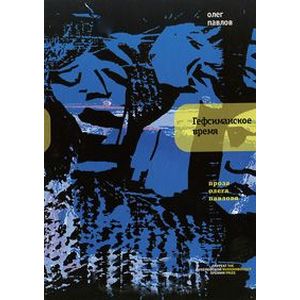Gethsemane time
Please sign in so that we can notify you about a reply
Oleg Pavlov began his essays and essays during when the literature refused even from seriousness of realism, noisy and festively given to the game with reality. The first essays - about homeless - were published in 1996. They became a continuation of the most symbolic story of the writer"s" end of the century ", translated later on all world languages written about those who are in the modern world" are doomed only to death. The basis of the story served as a real case: working in an ordinary hospital, Pavlov saw with his own eyes, how died on the sanitation of the homeless people, who were overlooking the Moscow streets with traces of Militia beatings. What Pavlov wrote about, and before that there was a lot of disputes, although the young author was far from any ideology, calling only to compassion. However, the Christian pathos of his prose and journalists who exposed to the limit of the world of human sufferings, sounded as a protest, in which some had seen the truthful certificate of life, and the other "Chernushny Paskvil". After Solzhenitsyn, who published the "Russia in the ripple", in his first witness of Pavlov was not afraid to put the same task in front of him: "Fold that we saw, we see and worry. Alexander Isaevich Solzhenitsyn entrusted Pavlov Publishing and comments on the part of the letters addressed to his fund in the early 90s - and he saw and showed this tragic panorama of the people"s life in his work "Russian letters". The main one for the writer continued an essay in which he comprehends Russian literature, history, life ... So, if Pavlov writes about camps, then in his essays of the camp of Russia, the study of the literature of the Gulag, historical facts and personal human life experience who served as a camp guard in the late 80s. It is reliably, on Pavlov, only the fact that asked as a document - and if we want to know the truth about a person, you should learn it all whatever it is uncomfortable or painful. Improved this truth, sharpness and pain of his statement, published in 2003 the book "Russian man in the XX century" caused sincere responses and no less sharp criticism. One way or another, each Russian writer inevitably creates its myth about Russia. This myth is his heroes, space, time - Pavlov makes the subject of his new research in the work of "Russian literature and peasant question". These are not philological essays or an intellectual game in "searching meanings. Such a pose and such attitude to the writer alien. His hero is seeking truth. His books are the search for truth. But voluntarily or unwittingly, Pavlov, in essence, speaks of the choice provided by each his freedom: "Finding the truth is the search for the path, that is, the look facing the future. Ways and for yourself and for everyone, other - look for your own benefit. We strive to truth out of a sense of justice, realizing that there is no salvation for you one, if there is no it for everyone, and happiness, if it is not for everyone, other - to realize only your benefit. "Gethsemane time" is the time of choice and suffering. According to the author, this is the time in which there is Russia and her story, and the path to salvation through the update - through historical death and a new birth - again and again leads to Calvary. But this is the time, connecting both rich and poor, and smart, and stupid - everyone who survived the personal grief or divided the general - as no other expresses what can be called "the person of the people". The Russian writer turns to this time in search of the truth, the need for which becomes inevitable for everyone when the soul requires the utmost, confessional honesty in the opinion of himself and his life
Author:
Author:Pavlov Oh .
Cover:
Cover:Hard
Category:
- Category:Fiction
Series:
Series: Prose Oleg Pavlova
ISBN:
ISBN:978-5-9691-0651-2
No reviews found
